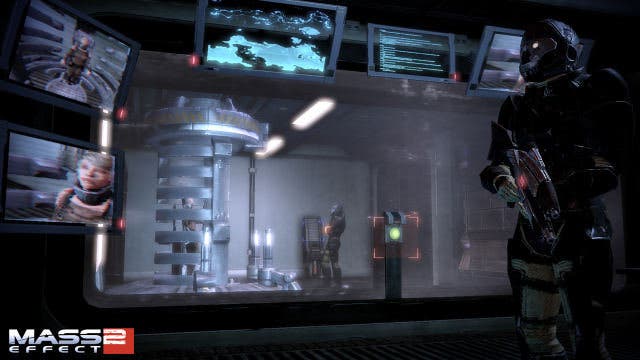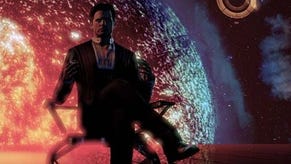Mass Effect 2: Arrival
Don't fear the Reapers.
Ask any gymnast and they'll agree: you have to stick the landing. It doesn't matter how many perfect flips and somersaults you perform if you end up flat on your face at the end.
Arrival may not be the end of Mass Effect 2 in terms of narrative linearity, but by virtue of being the final piece of DLC for a beloved game it's taken on a significance beyond the usual downloadable sidequest.
From a title that openly suggests we'll witness the start of the Reaper invasion to the way screenshots have been doled out in teasing chunks, BioWare has certainly played up to the assumption that this is the first step towards Mass Effect 3. The stage is set for flips and somersaults.
Shame Arrival lands flat on its face.
The impact wouldn't sting quite so much if this DLC wasn't following Lair of the Shadow Broker. That was a fantastically paced and self-contained miniature adventure which showed just how these optional chapters can be compelling in their own right, while enhancing and enriching the larger story.
In contrast, Arrival harks back to the drab Bring Down The Sky, the solitary narrative add-on for the original game, with echoes of Dragon Age: Origins' weaker DLC offerings to boot.
Things start promisingly enough. You receive a communication from Admiral Hackett, the Lance Henriksen-voiced military man who has played a small but memorable background role in both Mass Effect adventures.
A friend of his, Dr. Kenson, has been arrested by Batarians in a remote system. He needs Shepard to investigate and bring her home safely.
It's a standard set-up but it does at least kick things off in a tense manner. While this isn't a stealth game, the opening moments do a decent job of allowing you to feel like you're being stealthy as you negotiate your way past guards, usually by looking around for not-very-hidden alternate routes.

Things sadly start to unravel once you find the doctor and, one clunky (and largely inexplicable) plot twist later, you're into the meat of the experience. Shooting. Lots and lots of shooting.
The final two thirds of this hardly-epic story are made up almost entirely of third-person cover-based shooting against the same handful of enemy types over and over again. You enter a room, they enter from the other side, you duck into a safe spot and keep chipping away at the shooting gallery until they stop coming.
There's no exploration, just a linear corridor of identical shoot-outs, broken up by obligatory PDAs and audio logs which dollop out the exposition, lazily explaining why key characters have behaved the way they have.
The truly annoying thing is that Mass Effect 2's combat is interesting enough to make such an action-centred experience work. At least that's the case when you're working with a full squad, able to draw on the full range of abilities and weaponry on offer. In Arrival Shepard is on his own, which means you're going to have to deal with every encounter in the exact same way - rather than using fluid team strategy to cope with different situations.
Hackett tries to come up with a compelling reason why this task has to be performed solo, but it doesn't really wash. Mass Effect 2 is a squad game. Players have spent over a year sculpting and developing their own preferred balance of powers, finding combinations that provide the best tactical options.






